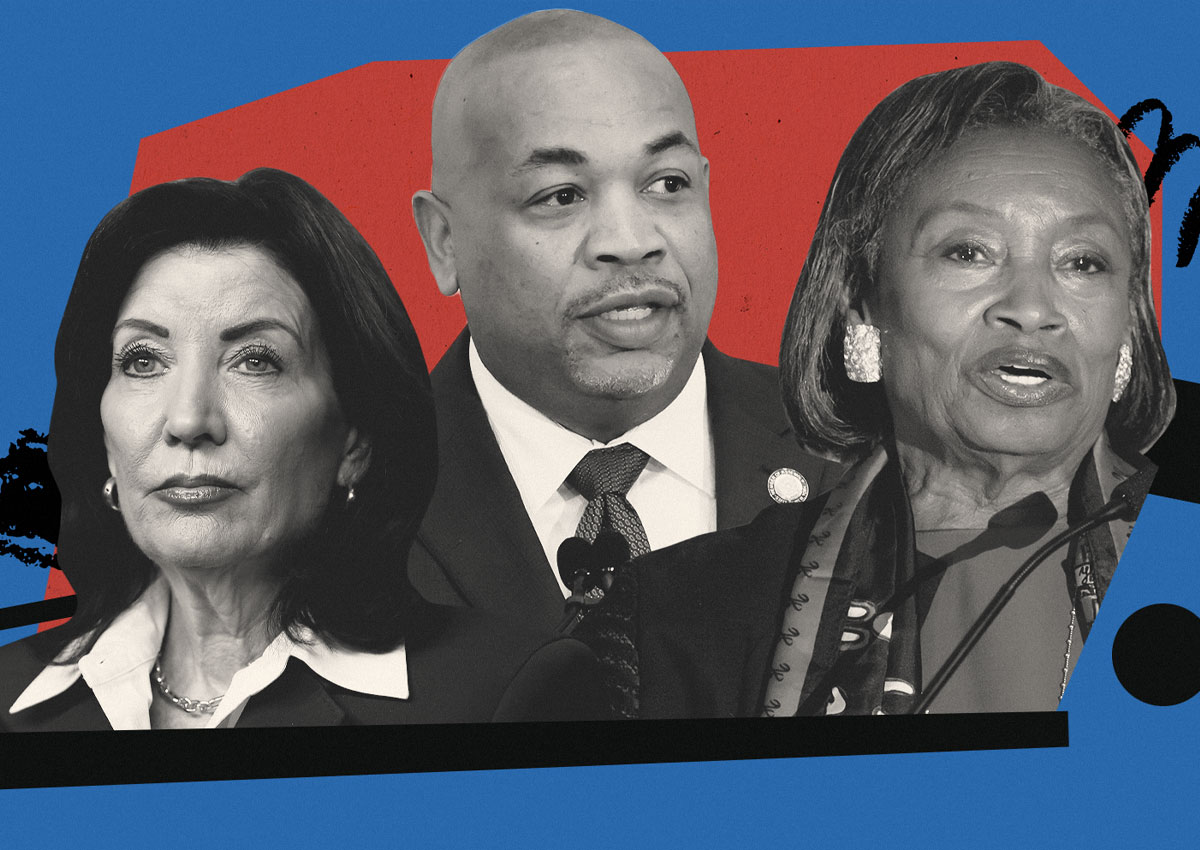Housing policy had top billing in last year’s state budget. This year? Not so much.
The $254 billion state budget, signed into law Friday, did, however, include a new housing voucher program and eases rules for condo conversions in some multifamily buildings.
The spending plan has more than $500 million in new state funding for various housing-related initiatives, including $100 million for a “Pro-Housing Supply Fund” to help localities that the state has certified as “pro-housing” pay for infrastructure upgrades needed for new housing.
Since the program’s creation in 2023, the state has certified 300 localities as “pro-housing,” meaning that they have either built a certain amount of housing or committed to passing policies that would make it easier to do so. Certified localities have access to up to $650 million in state discretionary funds. Gov. Kathy Hochul opted for this incentive-driven approach after she abandoned a proposal to set housing growth mandates throughout the state.
This year’s budget doesn’t advance major policy changes to make it easier to construct new housing, but it does include other legislation consequential to the real estate industry. Here’s where these issues landed, and the parties that will either benefit or be negatively affected:
Winners
Multifamily owners with expiring affordable housing: The budget includes legislation that makes it easier for owners of certain apartment buildings to convert market-rate units into condos. The rule changes will apply for the next six years.
Condo conversions plummeted after the 2019 Housing Stability and Tenant Protection Act, which changed the rules around rental to condo/co-op conversions. Before the law, existing tenants had to agree to buy 15 percent of the units for a conversion to move forward. The HSTPA increased that to 51 percent.
The budget lets some owners — those whose properties were built after 1996, have more than 100 units and have affordable units where the term of affordability is expiring — use the 15 percent threshold to convert market-rate apartments into condos. Owners who had affordable units due to programs like 421a or low-income housing tax credits must keep those units permanently income restricted (at or below 60 percent of the area median income). Those whose units are already permanently affordable (through a program such as inclusionary housing) must increase the number of affordable apartments. A nonprofit must then take ownership of the affordable units.
The bill was supported by the Real Estate Board of New York and Habitat for Humanity’s New York City chapter. According to Habitat, approximately 150 buildings with 30,000 apartments could qualify for the new rules. The changes sunset in 2030.
Tenants and landlords: Creating a state-based housing voucher program is something that landlord and tenant groups have long supported, but it has failed to secure the necessary support from the governor. This year, the governor and legislature agreed to allocate $50 million to the Housing Access Voucher Program, which provides rental assistance to families or individuals who are homeless or in imminent danger of losing their homes. The budget authorizes a four-year pilot of the voucher program.
The funding is significantly less than the $250 million repeatedly sought by Democrats in the Senate and Assembly, and is expected to support 5,749 people per year. In a statement, VOCAL New York said the governor and legislature “cannot remain content with simply allocating another $50 million” after the program’s first year.
Film production companies and studios: In an attempt to compete with other states, the budget extends the state’s $700 million film production tax credit — which was set to last until 2034 — for another two years, through 2036, and makes a $100 million credit available for independent film productions.
This could help buoy owners of studio space. Brooklyn-based developer Doug Steiner, owner of Steiner Studio, said the tax credit “is absolutely necessary to attract business” to New York and helps the state stay competitive, especially as more films and television shows are shot across the Hudson River in New Jersey.
The credit isn’t without its critics. A state-funded report in 2023 found that the program does not provide a positive return on investment for taxpayers in terms of direct tax revenue.
New York City: The state allocated $1 billion, stretched over the next five years, to help the city implement its City of Yes for Housing Opportunity. The budget doesn’t earmark specific projects, but divides the funding into specific buckets, including $500 million for the construction of new affordable housing and $200 million for capital projects and improvements at New York City Housing Authority properties. Part of the funding, $50 million, is to be used to create a revolving loan fund for mixed-income housing. The budget separately allocates $50 million for a loan fund to help build mixed-income housing outside the city (Hochul’s executive budget called for $100 million for localities outside the city).
RealPage and similar companies: The final budget does not include a measure that would ban “collusion through the use of rent price-fixing software,” as Hochul’s executive budget proposed. RealPage has been the target of various lawsuits and investigations related to allegations that its software created a cartel of multifamily owners who worked together to keep rents high (by agreeing not to compete with each others’ pricing). RealPage has denied this and others have called the allegations bunk.
Losers
Millionaires: Tax rates on the state’s highest earners were slated to expire in 2027, but the budget extends that timeline until 2033. The highest rate, 10.9 percent, applies to those earning more than $25 million a year.
Investors in single- and two-family homes: Though the state does not track how many single- and two-family homes are owned by institutional investors in New York, Hochul made restricting such deals a priority this year. The budget bars institutional investors from bidding on single- and two-family homes for the first 90 days the properties are on the market. Such buyers are also denied deductions for depreciation and interest. The measure defines an institutional investor as someone who owns 10 or more one- or two-family homes and has $30 million or more in assets.
Proponents of the relocation tax break: The Relocation and Employment Assistance Program, which provides tax credits to businesses that relocate from outside NYC or from below 96th Street in Manhattan to above 96th Street or other boroughs, expires this year. In her executive budget, Hochul proposed extending it through 2030. She also proposed a new program, Relocation Assistance Credit Per Employee Program, to provide tax credits to out-of-state businesses that move to New York.
The programs, backed by the Five Borough Jobs Campaign, which includes the Real Estate Board of New York, were not included in the budget. They could, however, be addressed during the remainder of the session.
Legislation to watch
It’s not over until lawmakers go home (and even then, they could be called back for a special session).
Pro-housing group Open New York is pushing the legislature to approve the Faith‑Based Affordable Housing Act, which would make it easier for religious organizations to build affordable housing on their property.
Looming large for New York landlords is a measure that would change the criteria for when localities outside the city could adopt rent stabilization. The industry is also watching another bill that would limit rent increases on ground lease co-ops, but that measure seems to have lost some momentum.
The prospect of significant funding cuts at the federal level also threatens to upend the state’s just-approved spending plan. After President Donald Trump released his proposed 2026 fiscal year budget, Hochul stated that “no state in the nation can backfill the cuts that the President is proposing.” The budget also provides the governor with the ability to make mid-year cuts in response to federal actions.
Read more

Hochul pitches housing fund but doesn’t require more construction

Housing deal finally passes; here are the details

The Daily Dirt: Hochul pitches mild housing agenda

